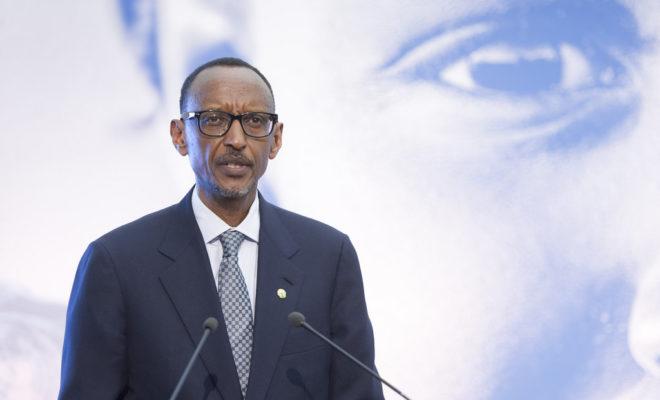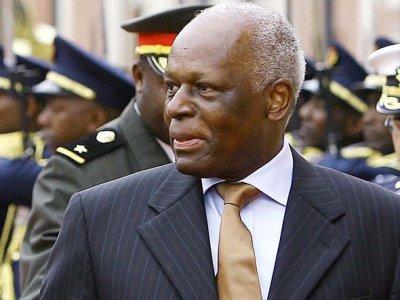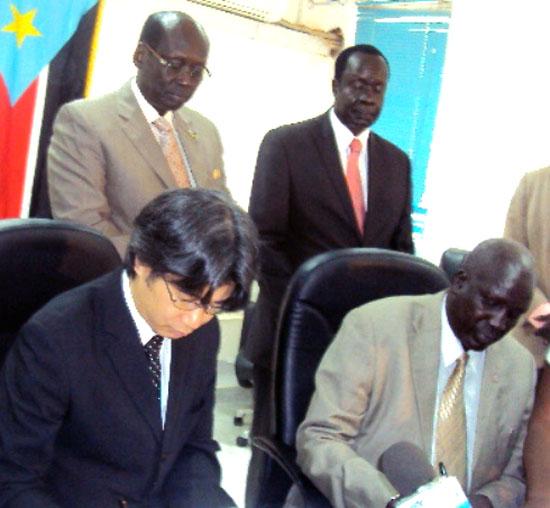Rwanda’s election outcome is already decided

Only President Paul Kagame has a chance of winning the 2017 presidential election. And he could stay in power until 2034.

President Paul Kagame has been in power since 1994. Credit: UN Photo/Mark Garten.
“More of a coronation than real contest.” That’s how the Kenyan daily The Standard characterised Rwanda’s presidential poll slated for 4 August. It sums up the reality well. In countries with competitive politics, elections are an important moment giving rise to debate and excitement. Not so in Rwanda.
Rwandans have become accustomed to polls where everything is settled in advance. This was the case before the genocide, when the country was officially a one-party state. And it has been the case since 1994, after which Rwanda became a de facto one-party state under the Rwandan Patriotic Front (RPF).
The current template for elections was set in 2003, when a constitutional referendum and the first post-genocide elections were held. In the run-up to these polls, the last genuine opposition party was banned, while the campaign was marred by arrests, disappearances and intimidation. An EU observer mission noted that, ironically, “political pluralism is more limited than during the transition period”.
The polls themselves were replete with allegations of fraud, manipulation of electoral lists, ballot-box stuffing, and flawed counting. Paul Kagame was declared the winner with 95% of the vote.
Similar dynamics were seen in the 2008 and 2013 parliamentary elections as well as the 2010 presidential poll. Opposition leaders were arrested and condemned to long prison sentences, while other critical voices were killed or went into exile.
In 2010, there were reports of local leaders going from door to door to collect voters’ cards and submitting their ballots for them. The Commonwealth observer mission at the time noted that “it was not possible to ascertain quite where, how and when the tabulation was completed”.
Kagame until 2034?
The presidential elections in 2010 were expected to be Kagame’s last. He was beginning his second constitutionally-mandated seven-year term and denied that he would seek re-election. He even claimed it would be a failure on his part not to find a replacement and warned that “those who seek a third term will seek a fourth and a fifth”.
Nevertheless, many remained sceptical that Kagame would step down, and in May 2013, his position became clearer when Justice Minister Tharcisse Karugarama was sacked shortly after insisting in an interview that Kagame would have to leave power in 2017 in accordance with the law.
By this time, a campaign had already started aimed at “convincing” the president to stay in office. In 2015, this culminated in 3.7 million Rwandans signing a petition – some under significant pressure – demanding that parliament enact constitutional changes that would allow Kagame to remain in power. It was claimed that this was a spontaneous action by the people, but it is unlikely such an operation could have been organised without the president’s knowledge and direction.
In subsequent “consultations” on the matter held throughout the country, MPs and senators claimed to have only found ten people – out of a population of 11 million – who opposed the initiative. Soon after, both houses unanimously approved a constitutional amendment to be put to a referendum.
The proposed revision called for maintaining the two-term limit and reducing term lengths from seven to five years. It also included a crucial provision allowing the incumbent to first run for an additional seven-year term, after which he would be eligible to bid for two more five-year terms. The changes effectively allow Kagame to stay in power until 2034, by which time he would have ruled Rwanda for 40 years.
While the issue of term limits has led to protests in many African countries, in Rwanda there was no debate or demonstrations around the December 2015 referendum. This was not surprising given that since the RPF took power, no demonstrations have taken place that were not organised by the regime itself. The amendment passed with 98.3% of the popular vote.
On 31 December 2015, President Kagame announced that he would run again, saying: “You requested me to lead this country again after 2017. Given the importance and consideration you attach to this, I can only accept”.
The candidates
Others also declared their intention to stand in 2017, including a handful of independents, but they have faced significant obstructions.
In May 2017, 35-year-old Diana Rwigara announced her candidacy, saying “people are tired, people are angry”. She had previously shown courage in criticising the government and human rights abuses. In the days following her announcement, doctored nude photographs of her circulated on social media.
Another aspirant, the Catholic prelate turned politician Thomas Nahimana, was denied access to Rwanda. Meanwhile, Gilbert Mwenedata, claimed that he was refused rooms by hotels in Kigali to hold a press conference to announce his plans.
The challenges facing independent candidates are dauntingly high to begin with. To be eligible, they must collect 600 signatures of support, including at least 12 from each of 30 districts. This may not seem much, but in an environment that does not tolerate criticism of the regime, it takes a lot of courage to reveal oneself to be an opposition supporter. Rwigara claimed that local leaders threatened her supporters as they tried to gather signatures.
Nevertheless, at least two hopefuls – Rwigara and Mwenedata – claimed to have met this requirement. But the National Electoral Commission (NEC) rejected their candidacies, claiming many of the signatures gathered were invalid. The NEC did not allow the candidates to see their lists to work out which names were disqualified, and several diplomats in Kigali expressed concern over the process.
In the end, only one independent hopeful – the little-known former journalist Philippe Mpayimana – made it onto the NEC’s final list.
The barriers for political parties are less onerous, and the Democratic Green Party’s (DGP) Frank Habineza was affirmed as the third and final presidential candidate. All other parties announced that they would not field nominees, but instead back Kagame.
No level playing field
As in previous elections in Rwanda, 2017’s opposition candidates have not faced an easy time or a level playing field in the run up to the polls.
While the RPF benefits from vast financial resources through its business ventures, other hopefuls were warned by the NEC against raising funds before being declared eligible. The electoral commission also announced in May that any social media messages by candidates or parties had to be submitted for vetting 48 hours prior to publication. Habineza called the decision “oppressive” and, after strong diplomatic protest, the measure was rescinded in early-June.
Opposition parties – in particular the non-registered FDU-Inkingi – have also seen their cadres arrested or disappeared. Amnesty International recently denounced the climate of fear surrounding the elections, saying: “Since the ruling Rwandan Patriotic Front took power 23 years ago, Rwandans have faced huge, and often deadly, obstacles to participating in public life and voicing criticism of government policy. The climate in which the upcoming elections take place is the culmination of years of repression.”
In these tense and oppressive circumstances, and given the widespread allegations of manipulation in Rwanda’s previous elections, it is not surprising that the head of the EU delegation in Kigali has said that “you would not lose any money if you bet on Mr Paul Kagame”.
Indeed, a 90% or higher victory for Kagame on 4 August seems inevitable in what will be coronation rather than election. All this is underscored by the latest Bertelsmann Stiftung’s Transformation Index (BTI) report in which Rwanda scored a mere two out of ten for “free and fair elections” and “effective power to govern”, and three for “association/assembly rights” and “freedom of expression”.






There is never democracy “ready to go” from the heavens! The house is never built on the bare sand. Using the word “never”, it’s looking to those who are leading in democracy in the world today. Africans have been trapped for a long time.
Kagame Paul, like the other strong Heros of nations, has to build strong institutions of Rwanda, the real foundation any country ever needs. This is not a job over night for a country which has tasted a complete death. Heros like this man Kagame are rare to find in “colonized countries”.
Democracy as western countries think in Africa, does not fit. It’s just a trap to keep Africa away from the realities. Africa need first, Africans who love their nations, and who understand how they can mobilize their people in order to together build the fruitful foundation of their country for the benefit of every single citizen.
That’s what Kagame is doing now. It will take the time it needs until all citizens understand what is best for their nation. Let African builders do their job in peace.
The standards you’re using SIr are so outdated – a bit like the constitution writing of post independence Rwanda!
It is clear the people and a greater majority are happy in Rwanda with what is going on. And when we feel unhappy we say so hear in Rwanda!
Don’t cry foul just resign, reform and you will be a happy man!
Best wishes!
Just a quick addition i used the term post independence – but i would rather use post – colonial Rwanda!
do your homework before you type
If we all Rwandans love Paul Kagame 100% why Rwanda under Paul Kagame is leading in killing,emprisoning,exiling opposition political leaders? What is he afraid of? Why did he need to manipulate the constitution so that he becomes a king of Rwanda?
04/08/2017 in Rwanda is more of coronation than Democratic election. Paul Kagame does not believe in democracy,freedoms and independence.But in dictatorial totalitarianism, authocracy and authoritarianism
People in Rwanda are said to be “happy” with totalitarianism just like people in Zimbabwe are said to be happy and it was so with people in Zaire under Mobutu, in Irak of Sadam Hussein, In Libya with Kadhafi and in Uganda under Idi Amini Dada. Idi Amini too said all the Ugandans forced him to be their ruler for his whole life.
Filip Reyntjens is the author of the1978 Rwandan Constitution that institutionalized one party state,how does he preach lessons on democracy?
Is there any checklist of democracy that ought to be benchmarked by all nations across the globe? ……. rather each country has to craft it suited checklist applicable to it context. I think Mr Paul Kagame is working on that checklist.
Dear Filip Reyntjens,
Thanks for your long text seeming like you only are recopying or gathering what have been said on us (Rwandans) since longtime. I simply assure you that we (Rwandans) are really happy and ready to vote for our Hero HE President Paul Kagame. Democracy, must be redefined and adapted dear! We know what is good and not good to us, come and we will teach you how loving your nation and its people; perhaps you will also learn a new course about patriotism. Don’t think Rwanda and its people like ones missing sight, we have eyes and we think about our beautiful country to hand over to our children and their children and theirs. Africans in summary, are now aware of their good and happiness. Regards
Let the gunners progress HE Paul Kagame. Keep going ahead.
There’s absolutely nothing surprising about President Kagame running for a next term. He’ll rule until he dies or is ousted (God forbid any violence, humanity is tired).
So while we deal with the obvious (his long-term presence), we only implore His Excellency to keep pushing the development/economic growth agenda.
He’s neither a savior nor the worst villain. We’ll take what we can get.
let kagame get mercy on his heart because he rulling Rwandanese as rats. But how God will judge him because he is about to die very soon. Let us pray for Rwanda.
Mr Theo,what do you understand by the term democracy,if you really know the kinder regime you living in at the moment……….